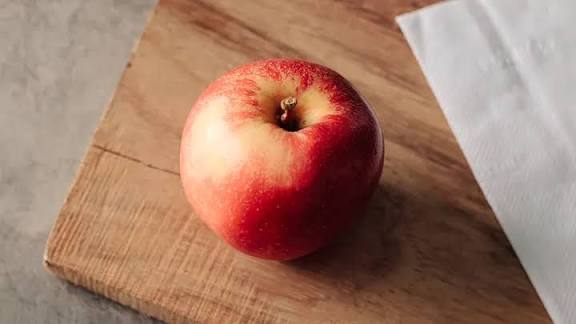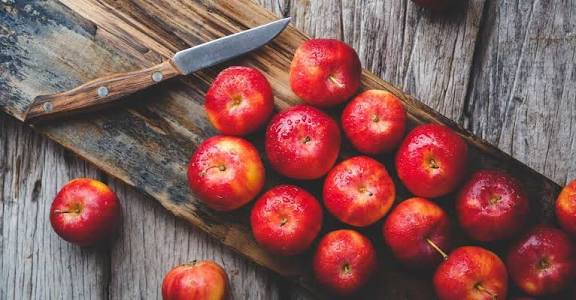Apples: Benefits, Risks, and Everything You Need to Know
Apples are one of the most loved fruits in the world. They are sweet, crunchy, and refreshing, which makes them a perfect snack for children and adults alike. For centuries, people have eaten apples for their taste and for the health benefits they bring. They are grown in many countries, come in different colors like red, green, and yellow, and are available almost all year round. But what makes apples so special? Why do people often say, “An apple a day keeps the doctor away”? In this article, we will explore the benefits of eating apples, some of the risks you should be aware of, and how to enjoy them safely.
Common Questions People Ask About Apples
When people search online, they often ask questions about how apples affect health, weight, and daily diets. Here are some of the most popular questions with clear answers:
1. Are apples really good for health?
Yes, apples are full of nutrients that support the heart, digestion, and immunity. They provide fiber, vitamins, and minerals, all of which play an important role in keeping the body strong.
2. Can eating apples every day prevent sickness?
Apples are not medicine, but eating them regularly can improve your overall health. They reduce the risk of certain illnesses, such as heart problems and digestive issues. They also contain antioxidants, which protect your body from damage caused by harmful molecules.
3. Is it better to eat an apple raw or cooked?
Raw apples contain the most fiber and vitamin C. Cooked apples are still healthy, but some vitamins may be lost during cooking. However, baked apples or apple sauce can be a fun way to enjoy the fruit, especially for children.
4. Should the skin be removed before eating?
It is better to eat apples with their skin on because the peel contains most of the fiber and antioxidants. Washing them properly before eating removes dirt and pesticide residues, making them safe to enjoy.
5. Do apples help with weight loss?
Yes, apples are low in calories but high in fiber. This makes you feel full for longer, which helps reduce overeating. Many people include apples in weight management diets.
6. Can children eat apples every day?
Absolutely. Apples are a perfect snack for kids. Just make sure to cut them into small, thin slices so they are safe to chew and swallow.
7. Do apples cause cavities in teeth?
Unlike sugary sweets, apples do not harm teeth when eaten in moderation. In fact, chewing apples can stimulate saliva, which helps clean the mouth and reduces bacteria. However, it is still important to brush teeth after eating any fruit.

The Benefits of Eating Apples
Apples are considered one of the healthiest fruits because they offer many different benefits. Here are some of the main advantages of eating them regularly:
1. Promotes Heart Health
Apples contain soluble fiber, which can help lower cholesterol levels. High cholesterol is a major risk factor for heart disease. Apples also provide antioxidants, such as flavonoids, which reduce the risk of strokes and heart attacks.
2. Improves Digestion
The fiber in apples supports a healthy digestive system. It adds bulk to stool, preventing constipation, and helps beneficial bacteria grow in the intestines. A healthy gut is important for overall wellbeing.
3. Supports the Immune System
Apples contain vitamin C, which is well-known for boosting the immune system. This vitamin helps your body fight off colds, flu, and other infections. Children and adults alike can benefit from eating apples during flu season.
4. Good for Weight Management
Because apples are filling and low in calories, they are a great choice for people who are trying to lose or control weight. Eating an apple before a meal can reduce hunger and lead to eating fewer calories overall.
5. Helps Maintain Healthy Teeth and Gums
Chewing an apple produces saliva, which washes away food particles and reduces bacteria in the mouth. While apples are not a replacement for brushing, they can help keep teeth healthier compared to sugary snacks.
6. Reduces Risk of Chronic Illness
The antioxidants in apples protect cells from oxidative stress. Over time, this can lower the risk of diseases like type 2 diabetes, certain cancers, and Alzheimer’s disease.
7. May Improve Brain Health
Some studies suggest that compounds in apples, particularly in the peel, may help protect brain cells and improve memory. This makes them a smart snack for students.
Risks of Eating Apples and How to Prevent Them
Although apples are very healthy, there are a few risks that come with eating them. These are not serious for most people, but it is important to know them:
1. Pesticide Residue
Apples often appear on lists of fruits with higher pesticide use. Eating them without washing may expose you to chemicals.
Prevention: Always wash apples under running water before eating. Organic apples are another option, though they can be more expensive.
2. Choking Hazard
Apples can be hard and crunchy, which makes them a choking risk for small children.
Prevention: Cut apples into thin slices or small cubes for kids. Avoid giving whole apples to toddlers.
3. Digestive Problems from Overeating
Eating too many apples may cause bloating, gas, or stomach cramps because of their high fiber content.
Prevention: Stick to one or two apples per day. Balance your diet with other fruits.
4. Apple Seeds
The seeds contain a substance called amygdalin, which can release small amounts of cyanide when broken down in the body. Eating a few seeds by accident is not harmful, but large amounts can be dangerous.
Prevention: Do not eat the seeds. Simply enjoy the flesh and peel.
5. Possible Allergies
Some people may experience an allergic reaction to apples, especially if they are allergic to birch pollen. Symptoms may include itching in the mouth or throat.
Prevention: If you have a known allergy, avoid raw apples and try cooked apples instead, as heating often destroys the allergen.
Fun and Educational Facts About Apples
- There are more than 7,500 different varieties of apples worldwide.
- China is the largest producer of apples, followed by the United States and Poland.
- Apples are members of the rose family, just like pears and cherries.
- The science of growing apples is called pomology.
- One medium apple has about 95 calories, making it a healthy snack.
- Apples contain 25 percent air, which is why they float in water.
- The first recorded apple orchard was planted over 4,000 years ago.
How to Enjoy Apples in Daily Life
Apples are not only healthy but also versatile. Here are some simple and fun ways to include them in your diet:
- Eat them raw as a snack.
- Slice them into salads for extra crunch.
- Make fresh apple juice or smoothies.
- Bake apples with cinnamon for a warm dessert.
- Add apple slices to oatmeal or cereal for breakfast.
- Prepare homemade apple sauce for children.
These ideas make apples a fruit that never feels boring.
Conclusion
Apples are one of the most nutritious and widely available fruits. They provide essential vitamins, fiber, and antioxidants that support heart health, digestion, immunity, and even brain function. For children, they make a safe and enjoyable snack when cut into smaller pieces. For adults, they are a natural way to maintain energy and prevent disease.
The risks of eating apples are minor and can be managed easily. Washing the fruit, avoiding seeds, and eating in moderation are enough to make apples safe for nearly everyone.
So, whether you are looking for a healthy school snack for kids or a natural way to improve your diet, apples are a simple but powerful choice. Truly, an apple a day can bring you closer to a healthier life.
